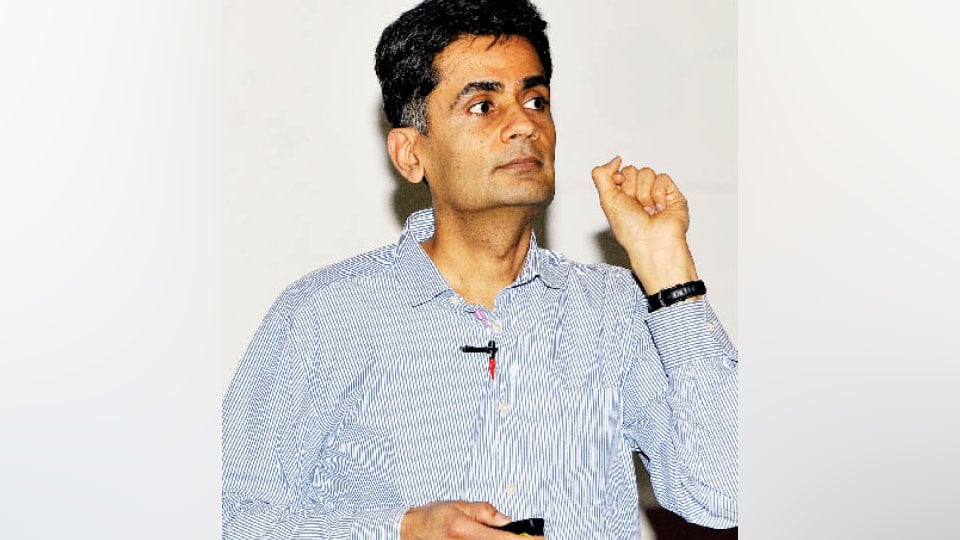Mysuru: Let data-driven randomised evaluation speak for what works or does not and not intuition or assumptions, said Iqbal Dhaliwal, Deputy Executive Director, Abdul Latif Jameel Poverty Action Lab (J-PAL), MIT.
He was speaking at the sixth Distinguished Lecture ‘From Research to Action: Using Evidence to Inform Policy’ at MYRA School of Business here recently.
He laid out interesting cases based on J-PAL’s work in Karnataka to drive the message that hard evidence speaks volumes about the impact of various government programmes — whether the MGNREGA or Microfinance Schemes. According to Dhaliwal, with no correlation found between Aid and Development, the need was felt to find out what worked and why it has worked, which led to evidence-based policy-making.
He also shared an overview of 800 projects through 170 associated faculty members across more than 50 Universities in 78 countries. In India, J-PAL has completed 200 projects in association with various academic institutions and is considered an authority in evidence-based policy decisions.
Dhaliwal spoke in detail about one study — an extensive, five-district randomised evaluation on improving health outcomes and service provider attendance in rural India specific to Karnataka — a field research study done in collaboration with Rema Hanna of Harvard Kennedy School. This study evidenced “How absenteeism can have huge consequences for the poor and for governments.” The central learning from this field research is mere monitoring without either incentives or disincentives do not yield desired outcomes.
Prof. Shalini Urs, Chairperson of MYRA, welcomed. Dr. Sudhendar Hanumantha Rao, Professor of Information Systems, proposed a vote of thanks.








Recent Comments